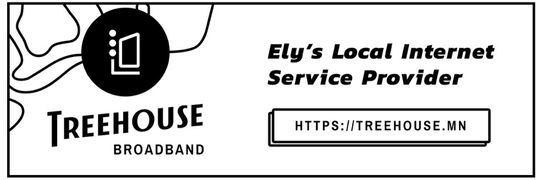Number, location of cannabis-specific businesses would be restricted
Ely city officials are pressing forward with ordinances that would severely limit the number of cannabis-based businesses in town, and where they might be located.
Much of the downtown business district would be off-limits under terms of one of two ordinances that will be up for adoption yet this year.
Council members heard both from proponents and opponents at a public hearing Tuesday, and during a regular meeting that followed, they largely came down on the side of those who favored more restrictions.
While current sales of “lower potency” products such as edibles and cannabis-infused drinks would largely continue as is, the ordinance establishes a new category for “cannabis retail businesses,” and establishes buffer zones that prohibit them within 500-to-1,000 feet of various entities including schools, daycares, residential treatment facilities, parks and other cannabis businesses.
The council directed city attorney Kelly Klun to reduce the number of cannabis-specific businesses from five to three, and didn’t waver on the buffer zone issue, voting 6-0 with almost no debate and Ryan Callen absent to proceed.
“I think it’s a good idea to approach this slowly,” said council member Adam Bisbee. “This ordinance can be modified in the future. In some cases, it’s easier to add than to take things away. I think it’s the prudent choice to make.”
Moments earlier, clerk-treasurer Harold Langowski presented a map showing how the buffer zones would close off much of the business district to cannabis businesses.
“The only way you could possibly (increase) would be to reduce the setbacks for Whiteside Park, the pocket park, the library and for the school,” said Langowski. “If you reduce those significantly, you would open up some of the other commercial district.”
Langowski’s map included an assortment of circles showing 500 and 1,000-foot radiuses from the various entities including the school and parks.
It appeared from the map that the only areas that cannabis businesses may be permitted to exist are on Sheridan Street from 10th Avenue East to 13th Avenue East, and from Central Avenue to First Avenue West.
Council member Paul Kess said the approval of the buffer zones “supports the decision to move to three licenses. It would be hard to fit (more) in there.”
The council had wrestled with the number of cannabis retail licenses to allow, with discussion last month starting at one, then jumping to five largely at the urging of member Al Forsman.
Forsman said Tuesday he supported going to three, and that change was supported on a 5-1 vote, with Angela Campbell in opposition.
Campbell clarified she was opposed to both numbers and questioned why the city could go higher than St. Louis County, which approved one license for every 12,500 people in areas where the county has zoning jurisdiction,.
“I don’t want five, I don’t want three,” said Campbell. “I’m opposed.”
Langowski clarified that the city by law must allow at least one license and there’s no maximum in place.
Prior to the brief council discussion, a handful of people including both city residents and those who live outside the city weighed in on the proposal.
Richard Stuart, who has proposed a cannabis cultivation business, told the council that the city was “on point” with its ordinance and that in some respects the city was facing an undue burden with a state requirement to adopt cannabis regulations.
“This plane is being built as we’re flying it, collectively,” said Stuart.
Stuart first broached the idea of limiting licenses to three, given the buffer zone restrictions.
“Based upon the buffer zones, it seems that five registrations may be too many, one is not enough, so I would recommend to the council to think about a happy medium between one and five,” he said.
Forsman also spoke at the public hearing, reading from portions of a letter submitted by resident and business owner Dafne Caruso.
Caruso wrote that “as a resident who lives across from Stinky Pete’s (an Ely business that sells low-potency cannabinoid products)” that she agreed with mayor Heidi Omerza’s earlier public comments in support of buffer zones.
“On more than one occasion I have smelled marijuana in my house coming from across the street,” Caruso wrote.
She wrote that she was concerned about her grandchildren being exposed to marijuana while at her home.
Caruso also wrote that council members consider how Ely is to “portray itself to the outside world,” and noted that the legalization of marijuana has changed her hometown of New York City.
“It doesn’t mean these state lawmakers have our best interest at heart,” wrote Caruso. “Labeling something legal doesn’t make it good.”
Todd Crego, an employee of Stinky Pete’s, came to the podium to take issue with one aspect of the letter.
“I was a summer employee at Stinky Pete’s this summer and there is no smell of marijuana, there is no marijuana being sold there, being used there, so I’m not sure what she’s referring to,” said Crego.
Carol Stahl, who lives outside the city limits, urged the council to take action to restrict cannabis-related businesses.
“I know Minnesota has changed its laws and we have to abide by those, but whatever you can do to limit the use and sale of this drug in this town it would be for our benefit, for our economy’s benefit, for our children’s benefit,” said Stahl. “We have children to think of.”
Stahl described the negative impact marijuana has had on herself and family members and called it a stepping stone to more dangerous substances.
“The more businesses you have in town, the more it’s going to be available,” said Stahl. “If you can limit it, keep it as far away from the school system as you can.”
Ely resident Abby Dare told the council she appreciated the discussion and suggested that education is important.
“It’s one thing to have these rules written,” said Dare. “It’s a whole another thing for people of Ely to thoroughly understand alcohol and cannabis. I do think the city can have influence in that sector too.”
Lacey Squier, who also lives in Ely, told the council she “wants to speak favorably in terms of the potential for new products and new industry coming to town.”
Squier acknowledged the concerns raised by other speakers but added “I also want to acknowledge and claim my own casual recreational use and I think relatively harm-free consumption of THC products.”
“I want to be a voice in the conversation to say we can have these businesses in the community and benefit from the economic stimulus they provide,” said Squier. “And be a community that moves into this new era of the state of Minnesota where these products are legal and be mindful and not allowing for it to be a gateway drug, but finding that middle space.”
Campbell told the council she has spent part of the last two years trying to better understand the cannabis issue, attending hearings “both pro and con.”
“We’re flying by the seat of our pants and hopefully we’ll have a better understanding and control of cannabis legislation. I care about our community, our public, our visitors.”
Council action comes in the wake of state legislative action that legalizes recreational marijuana.
In July, the city enacted a temporary moratorium on the establishment of new commercial operations related to the sale, distribution and manufacturing of cannabis and THC products, but the city is required to have its own regulations in place by the end of the year.
Two ordinances are under consideration, one regulating cannabis businesses and the other related to the zoning of cannabis businesses.
The first ordinance further defines cannabis-related products and defines low potency products including those intended to be eaten or consumes, is not a drug, does not contain cannabinoid derived from plants or flowers, and is the type of product approved for sale by the Minnesota Office of Cannabis Management.
These products are those typically found at convenience stores or bars.
The ordinance sets up licensing provisions for these businesses and allows for a maximum of 10 of these businesses in the city limits.
It includes prohibitions typical to the sale of other products such as cigarettes or alcohol including a ban on self-service machines and a minimum age (21) requirement for purchase.
As currently proposed, sale of those products and operation of those businesses would not be subject to the proposed buffer zones.
“I appreciate the education piece,” said Omerza, citing educational efforts that are ongoing in the Ely schools. “Definitely I will have conversations with our health ed teacher about that.”
Omerza added that “One of the pieces that got missed is you have to be 21 to purchase and I believe there are some pretty harsh penalties if cannabis is sold to someone under 21.”
She also cited Ely’s proximity to the Boundary Waters Canoe Area Wilderness, noting that use of cannabis and related products are not legal in the federal wilderness area.










